About this threat
Windows Has Been Shutdown pop-up is a scam alert about some kind of infection on your computer, which has triggered the shutdown on your Windows as a result. It’s a very obvious lie and can be classified as a tech-support scam. The way it works is, you get a warning that your computer has been infected with some kind of malware, maybe your data is being stolen, and your computer/account/Windows etc. has been blocked to prevent further damage. 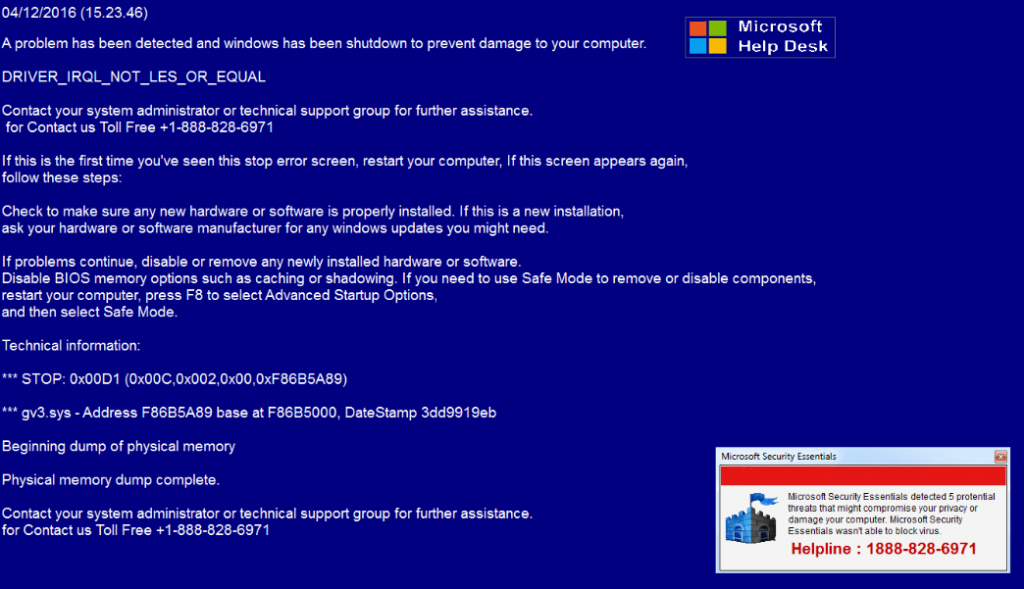 A phone number is provided, and the warning claims it would connect you to professional tech-support. You call them, they mess around with your computer remotely and suddenly you have to pay a couple of hundred dollars for the service. Only they didn’t do anything because there is nothing wrong with your computer and you were scammed.
A phone number is provided, and the warning claims it would connect you to professional tech-support. You call them, they mess around with your computer remotely and suddenly you have to pay a couple of hundred dollars for the service. Only they didn’t do anything because there is nothing wrong with your computer and you were scammed.
These kinds of scams are pretty common and everyone will have encountered one before if they are regular Internet users. They can appear when you are on dubious websites or could be caused by an adware infection. Adware is usually picked up when installing free programs, especially ones you get from dubious websites. They are attached to free programs as extra offers, which you need to deselect in order to prevent their installation. While it’s not malicious by itself, it could bring about more serious infections, or in this case, financial loss. If you want to delete Windows Has Been Shutdown Scam ads, you will have to get rid of the adware causing it.
Is the warning legitimate?
The short answer to that is no, it’s not legitimate. Merely a tech-support scam trying to get your money. Whatever the warning is claiming is wrong with your computer, it’s not true. Unless the issue is completely unrelated to this. In most cases, these scams try to scare users into thinking that the malware they are supposedly infected with is stealing their personal information, including bank data. This makes people panic and they might not think through everything before reacting. Users would see a phone number with big “Windows tech-support” letters above, and without thinking would call them. They would be connected to professional scammers who essentially steal money from people for a living. They would ask to connect to the computer remotely, and if the owner allows it, they would do some ‘fixing’, and then ask you to pay a couple of hundred dollars for the services. Since they didn’t actually do anything useful, you would be paying for nothing. The right course of action in this situation would be to ignore the warnings and remove Windows Has Been Shutdown Scam pop-ups causing adware. And if you are not sure how you can differentiate between these scams and legitimate warnings, remember that your browser will never warn you about an infection on your computer because it cannot detect one. And Windows, or Apple or any other legitimate company, would never ask you to call them. And they would never call you. So whenever you get these kinds of warnings, you can be sure that they are a scam.
Why are you seeing the pop-ups?
If you were visiting some questionable website when you got the pop-up, it’s probably a one-time thing. However, if you are constantly getting them, even when browsing secure sites, adware could be to blame. Adware could have entered your computer when you were installing some free program. It may have been attached as an extra offer, and you did not deselect it, which would have prevented it from installing. To be able to uncheck the offers, you need to choose Advanced or Custom settings, and uncheck the boxes that appear there. After you have deselected every offer, you can continue installing the program. You won’t pick up a serious infection this way, but those that you can, will be very annoying to deal with.
Windows Has Been Shutdown Scam removal
If it’s adware you are dealing with, to uninstall Windows Has Been Shutdown Scam pop-ups, you’ll have to get rid of the adware. You may need anti-spyware software if you have little experience when it comes to computers. Obtain the program and allow it to take care of everything. If you would prefer to do everything yourself, you can perform manual elimination. You are welcome to use the below provided instructions to help you, but bear in mind that it may take more time than you realize.
Offers
Download Removal Toolto scan for Windows Has Been Shutdown ScamUse our recommended removal tool to scan for Windows Has Been Shutdown Scam. Trial version of provides detection of computer threats like Windows Has Been Shutdown Scam and assists in its removal for FREE. You can delete detected registry entries, files and processes yourself or purchase a full version.
More information about SpyWarrior and Uninstall Instructions. Please review SpyWarrior EULA and Privacy Policy. SpyWarrior scanner is free. If it detects a malware, purchase its full version to remove it.

WiperSoft Review Details WiperSoft (www.wipersoft.com) is a security tool that provides real-time security from potential threats. Nowadays, many users tend to download free software from the Intern ...
Download|more


Is MacKeeper a virus? MacKeeper is not a virus, nor is it a scam. While there are various opinions about the program on the Internet, a lot of the people who so notoriously hate the program have neve ...
Download|more


While the creators of MalwareBytes anti-malware have not been in this business for long time, they make up for it with their enthusiastic approach. Statistic from such websites like CNET shows that th ...
Download|more
Quick Menu
Step 1. Uninstall Windows Has Been Shutdown Scam and related programs.
Remove Windows Has Been Shutdown Scam from Windows 8
Right-click in the lower left corner of the screen. Once Quick Access Menu shows up, select Control Panel choose Programs and Features and select to Uninstall a software.
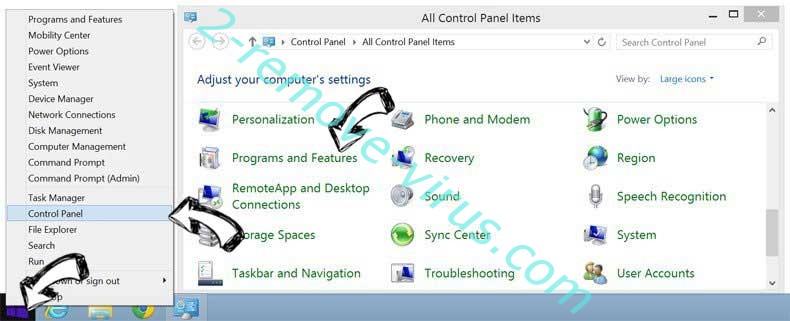

Uninstall Windows Has Been Shutdown Scam from Windows 7
Click Start → Control Panel → Programs and Features → Uninstall a program.
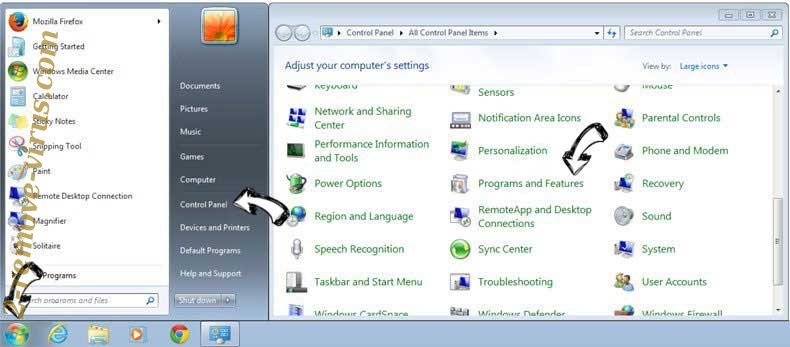

Delete Windows Has Been Shutdown Scam from Windows XP
Click Start → Settings → Control Panel. Locate and click → Add or Remove Programs.
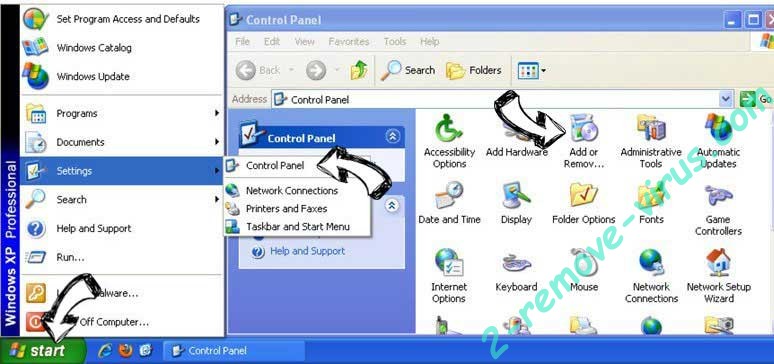

Remove Windows Has Been Shutdown Scam from Mac OS X
Click Go button at the top left of the screen and select Applications. Select applications folder and look for Windows Has Been Shutdown Scam or any other suspicious software. Now right click on every of such entries and select Move to Trash, then right click the Trash icon and select Empty Trash.
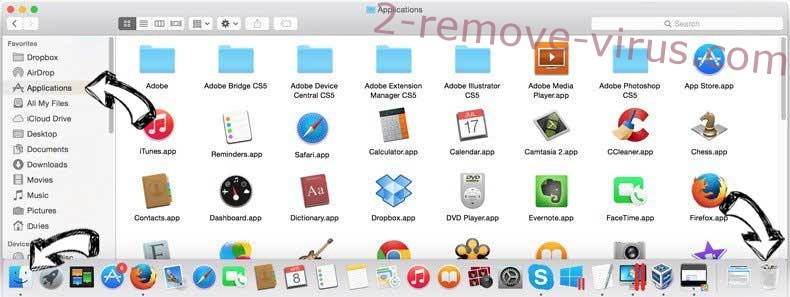

Step 2. Delete Windows Has Been Shutdown Scam from your browsers
Terminate the unwanted extensions from Internet Explorer
- Tap the Gear icon and go to Manage Add-ons.

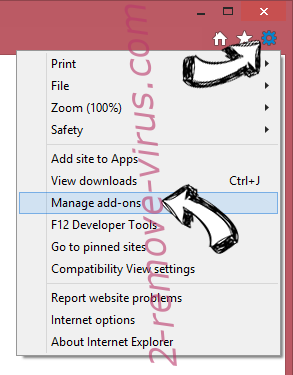
- Pick Toolbars and Extensions and eliminate all suspicious entries (other than Microsoft, Yahoo, Google, Oracle or Adobe)

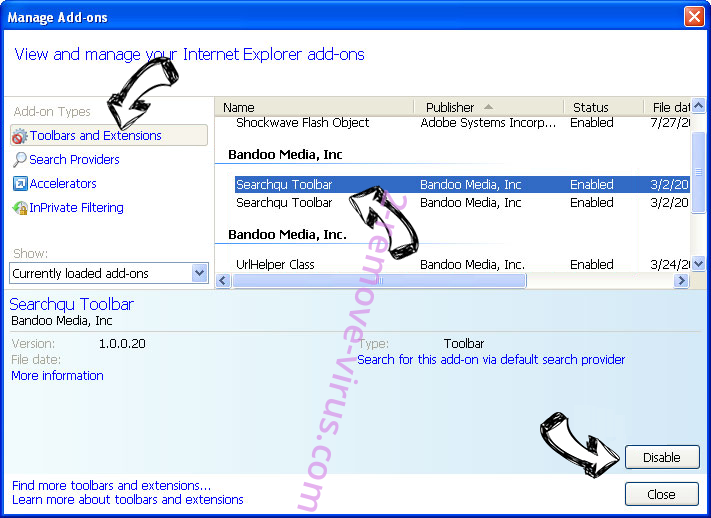
- Leave the window.
Change Internet Explorer homepage if it was changed by virus:
- Tap the gear icon (menu) on the top right corner of your browser and click Internet Options.

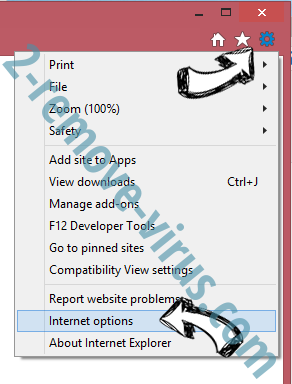
- In General Tab remove malicious URL and enter preferable domain name. Press Apply to save changes.

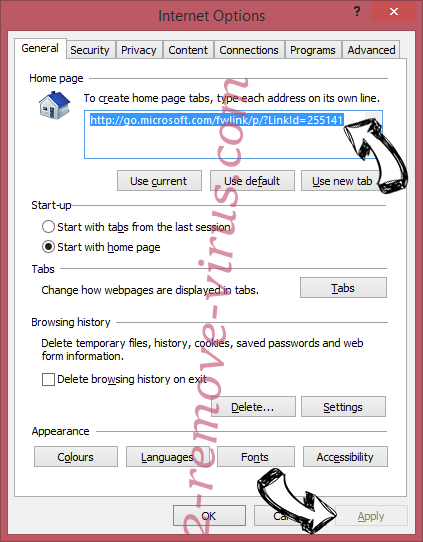
Reset your browser
- Click the Gear icon and move to Internet Options.

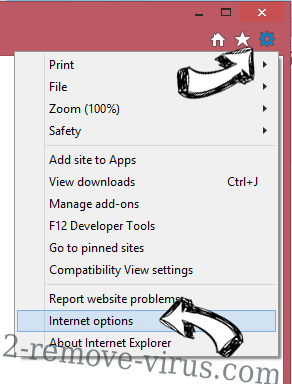
- Open the Advanced tab and press Reset.

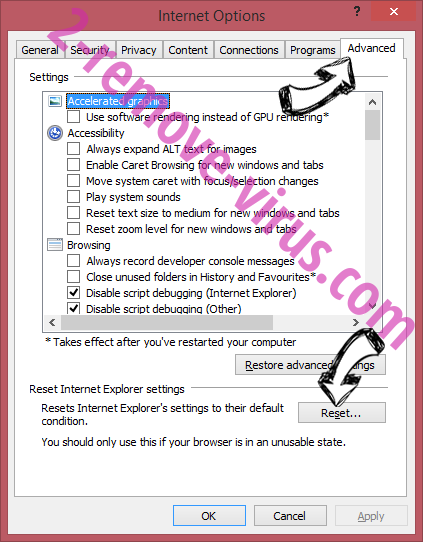
- Choose Delete personal settings and pick Reset one more time.

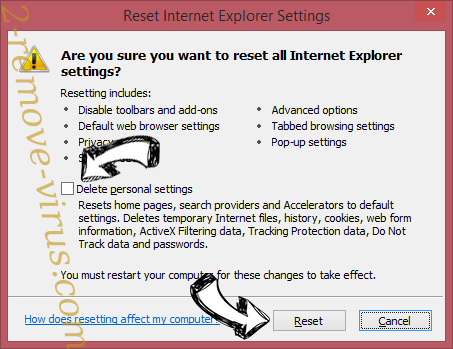
- Tap Close and leave your browser.

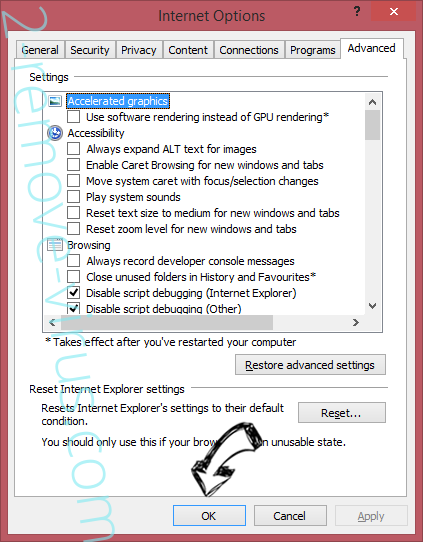
- If you were unable to reset your browsers, employ a reputable anti-malware and scan your entire computer with it.
Erase Windows Has Been Shutdown Scam from Google Chrome
- Access menu (top right corner of the window) and pick Settings.

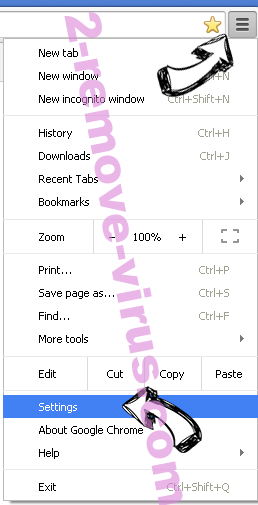
- Choose Extensions.

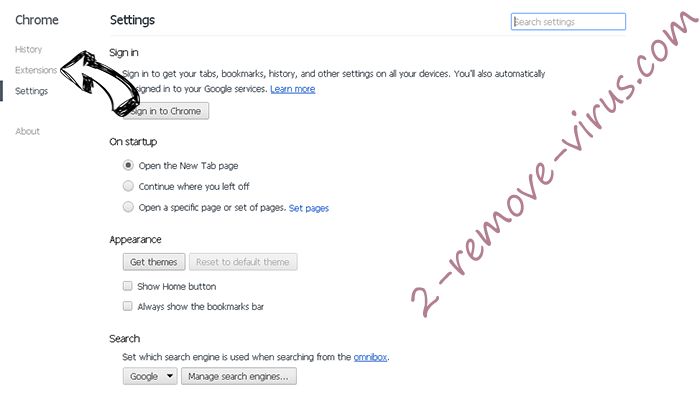
- Eliminate the suspicious extensions from the list by clicking the Trash bin next to them.

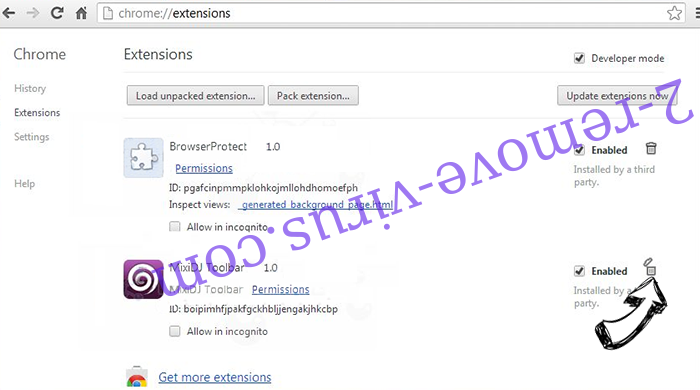
- If you are unsure which extensions to remove, you can disable them temporarily.

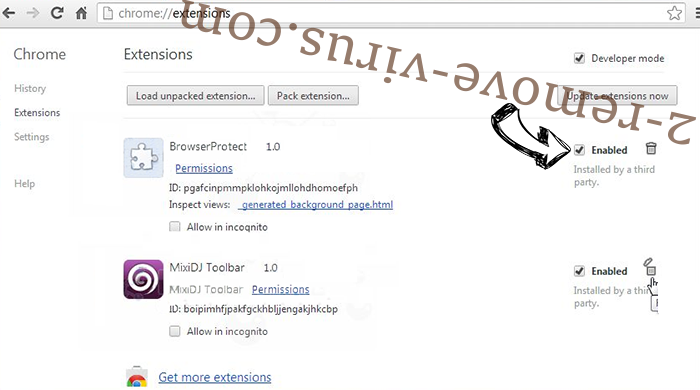
Reset Google Chrome homepage and default search engine if it was hijacker by virus
- Press on menu icon and click Settings.

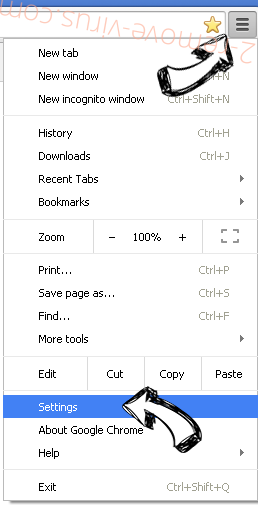
- Look for the “Open a specific page” or “Set Pages” under “On start up” option and click on Set pages.

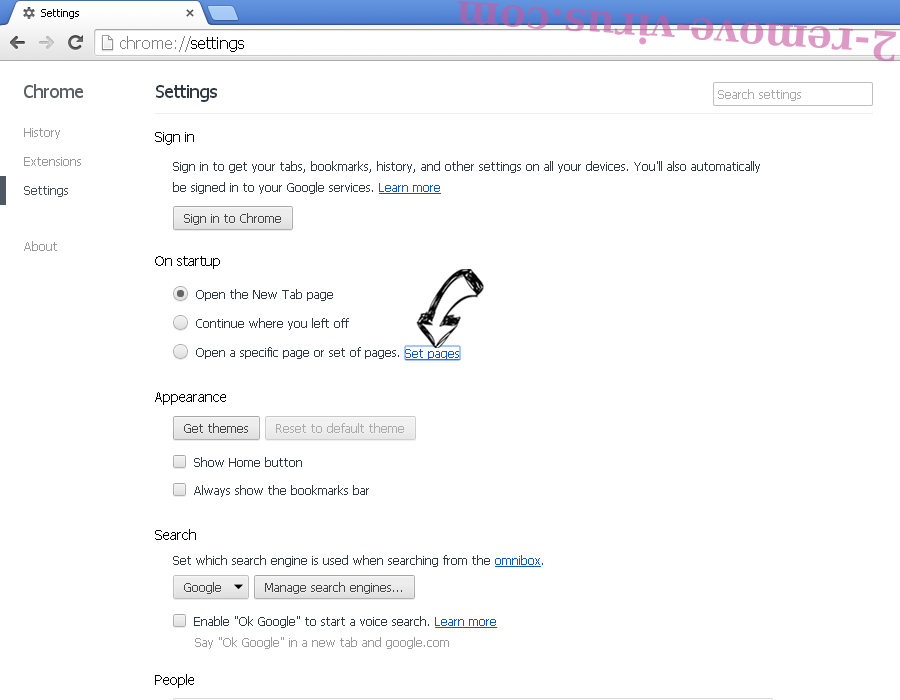
- In another window remove malicious search sites and enter the one that you want to use as your homepage.

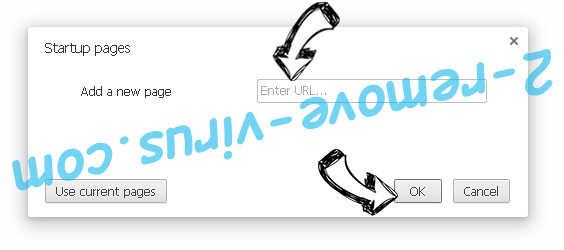
- Under the Search section choose Manage Search engines. When in Search Engines..., remove malicious search websites. You should leave only Google or your preferred search name.

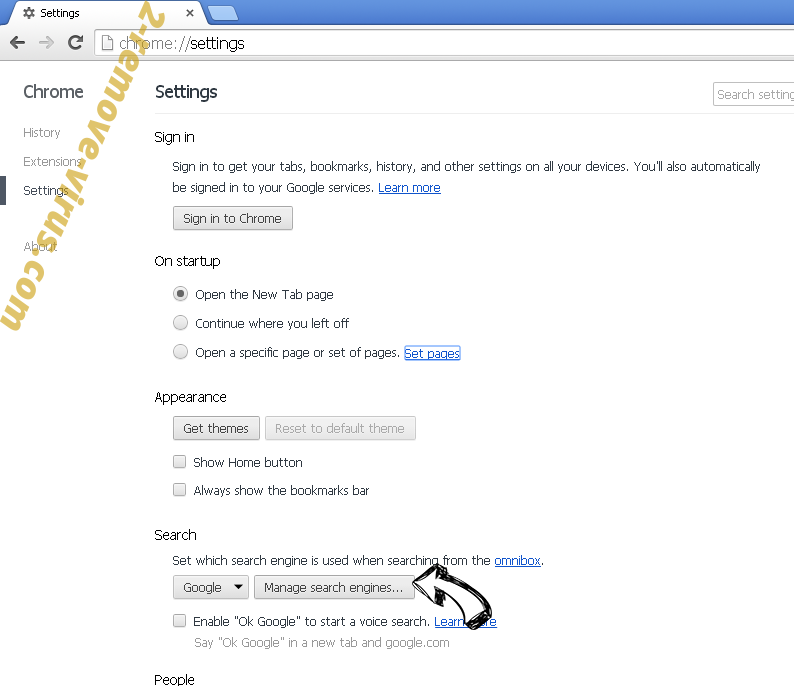

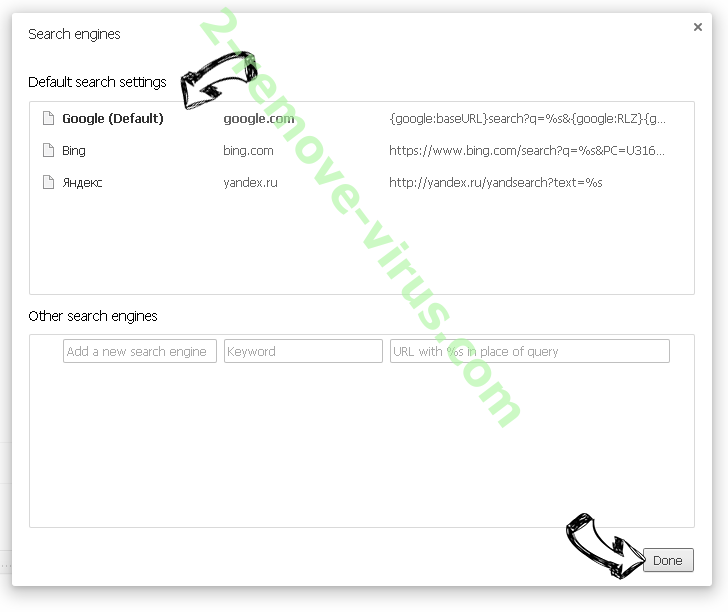
Reset your browser
- If the browser still does not work the way you prefer, you can reset its settings.
- Open menu and navigate to Settings.

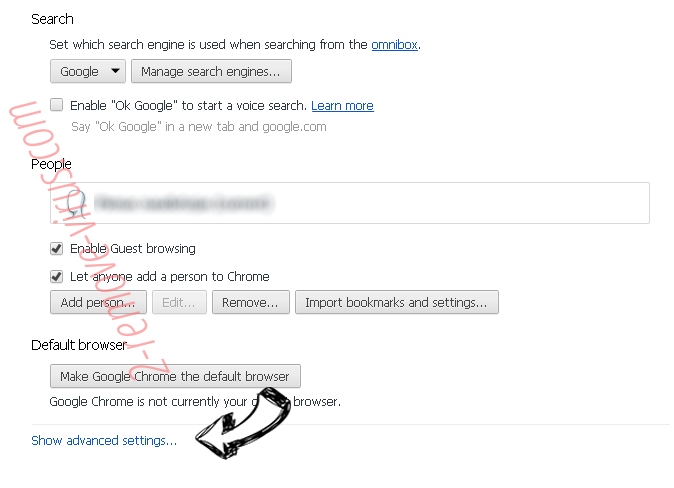
- Press Reset button at the end of the page.

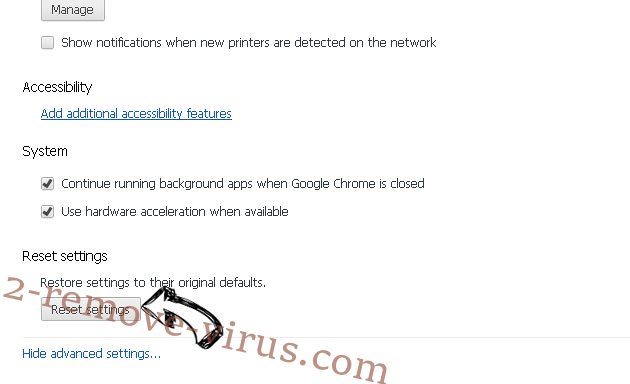
- Tap Reset button one more time in the confirmation box.

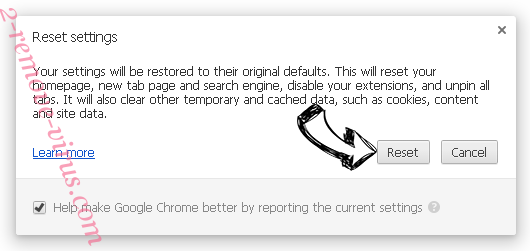
- If you cannot reset the settings, purchase a legitimate anti-malware and scan your PC.
Remove Windows Has Been Shutdown Scam from Mozilla Firefox
- In the top right corner of the screen, press menu and choose Add-ons (or tap Ctrl+Shift+A simultaneously).

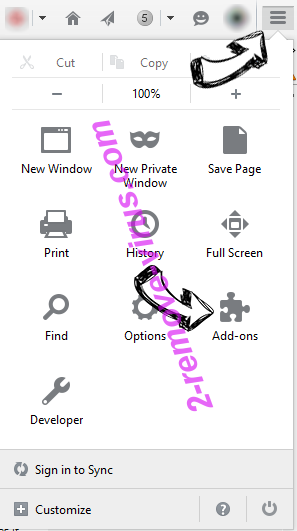
- Move to Extensions and Add-ons list and uninstall all suspicious and unknown entries.

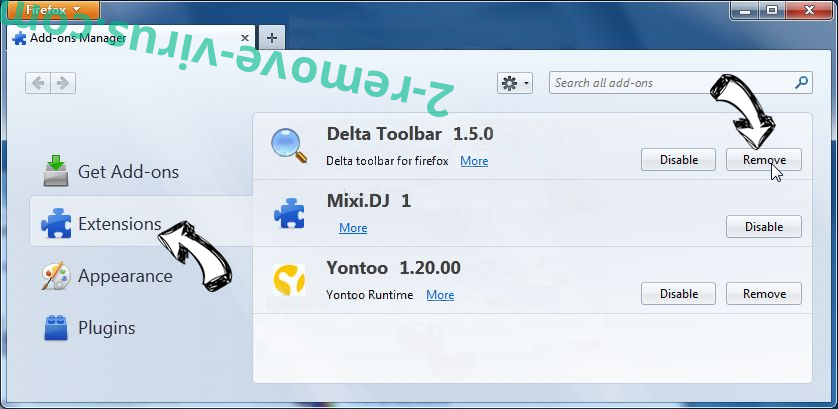
Change Mozilla Firefox homepage if it was changed by virus:
- Tap on the menu (top right corner), choose Options.

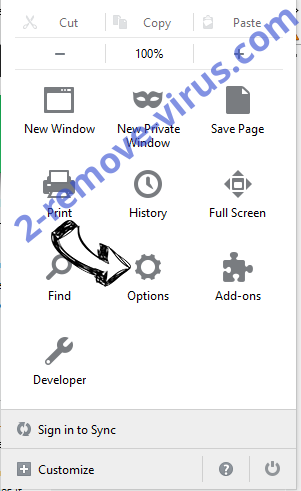
- On General tab delete malicious URL and enter preferable website or click Restore to default.

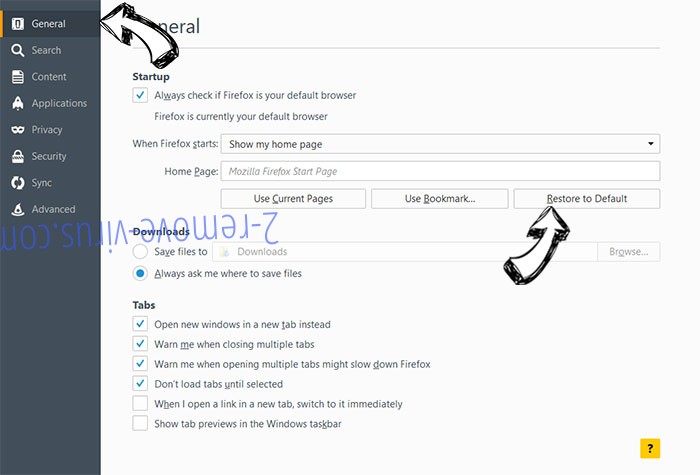
- Press OK to save these changes.
Reset your browser
- Open the menu and tap Help button.

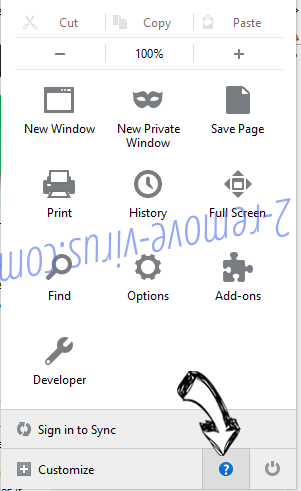
- Select Troubleshooting Information.


- Press Refresh Firefox.

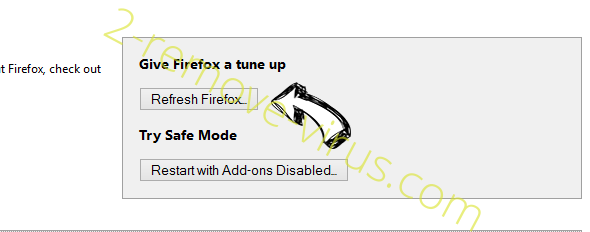
- In the confirmation box, click Refresh Firefox once more.

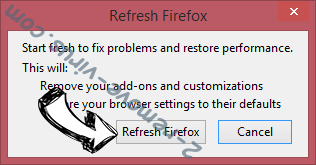
- If you are unable to reset Mozilla Firefox, scan your entire computer with a trustworthy anti-malware.
Uninstall Windows Has Been Shutdown Scam from Safari (Mac OS X)
- Access the menu.
- Pick Preferences.

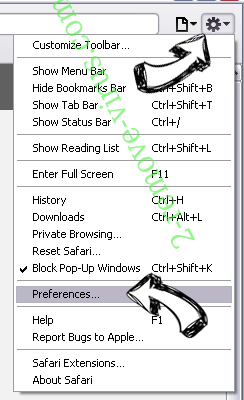
- Go to the Extensions Tab.

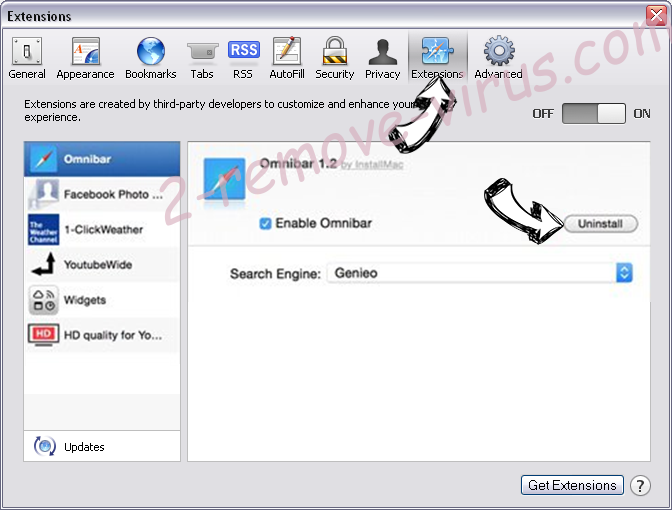
- Tap the Uninstall button next to the undesirable Windows Has Been Shutdown Scam and get rid of all the other unknown entries as well. If you are unsure whether the extension is reliable or not, simply uncheck the Enable box in order to disable it temporarily.
- Restart Safari.
Reset your browser
- Tap the menu icon and choose Reset Safari.

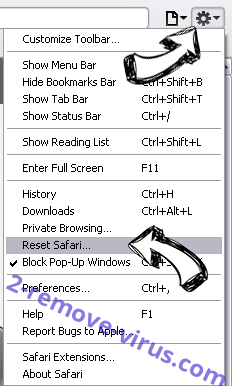
- Pick the options which you want to reset (often all of them are preselected) and press Reset.

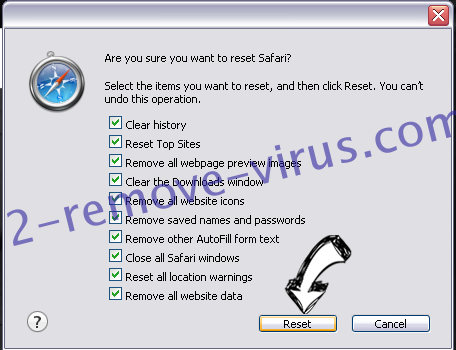
- If you cannot reset the browser, scan your whole PC with an authentic malware removal software.
Site Disclaimer
2-remove-virus.com is not sponsored, owned, affiliated, or linked to malware developers or distributors that are referenced in this article. The article does not promote or endorse any type of malware. We aim at providing useful information that will help computer users to detect and eliminate the unwanted malicious programs from their computers. This can be done manually by following the instructions presented in the article or automatically by implementing the suggested anti-malware tools.
The article is only meant to be used for educational purposes. If you follow the instructions given in the article, you agree to be contracted by the disclaimer. We do not guarantee that the artcile will present you with a solution that removes the malign threats completely. Malware changes constantly, which is why, in some cases, it may be difficult to clean the computer fully by using only the manual removal instructions.
